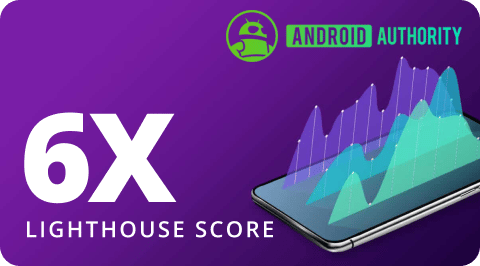![CMS Comparison: WordPress Vs. Drupal [Infographic]](https://wpengine.com/wp-content/uploads/2016/05/cms-comparison-hero.png)
CMS Comparison: WordPress Vs. Drupal [Infographic]
If you’re trying to decide on the right CMS for your website, WordPress and Drupal are both flexible and SEO capable CMS’s. Yet, the two present stark differences in areas like cost and usability.
Check out the infographic below where we outline some stats on the differences between WordPress and Drupal.
Now that you’ve seen the infographic, let’s outline some key differences between the two CMS’s to help you determine whether WordPress or Drupal is better for you.
SECURITY
Because WordPress is so widely used, it becomes a bigger target for hackers than Drupal. But the frequent claim that Drupal is more secure than WordPress is false, especially when the right security precautions are taken.
Vulnerabilities can exist in outdated WordPress plugins, core, and themes, meaning it’s imperative to keep them up to date with the latest security patches. WordPress also contains many powerful third-party plugins to enhance security.
There are many other security precautions you can take with WordPress to avoid vulnerabilities.
Ease of use
If ease of use is important to you, you’ll want to go with WordPress. It’s super easy to use WordPress and instantly customize your site and start producing content. No coding knowledge is required, although it can help attain more possibilities in customization to learn a bit of CSS.
Also, WordPress’ massive community makes it easy for you to find answers to your questions; Drupal also boasts a helpful community, but doesn’t have as large of a user base or resources.
Drupal can be very difficult to use if you’re not experienced with code, yet using WordPress is a piece of cake for those who lack technical expertise.
MARKET SHARE
WordPress owns nearly 60 percent of the CMS market, while Drupal accounts for almost 5 percent.
The numbers do not lie — WordPress is the preferred choice and is used more than any other CMS for a reason, likely due to its simplicity and ease of use.
Scalability and speed
Both WordPress and Drupal are known to deliver scalability and speed to massive websites. And WordPress can scale even more by investing in managed WordPress hosting, which helps optimize site speed when content reaches large volumes and traffic levels are high.
Many huge media sites that produce massive amounts of content, like the NY Times, Forbes, Tech Crunch, etc. trust on WordPress for scalability and speedy content delivery.
SEO
Drupal claims to be built specifically with SEO in mind, and WordPress has a multitude of plugins to enhance SEO as well.
One main difference between the two is how they handle mobile. Many mobile themes on Drupal run better off a subdomain. This creates two separate URLs to index in search engines (i.e. www.yourdomain.com and www.m.yourdomain.com). Most of WordPress’ themes are mobile responsive and don’t have this problem.
MULTIPLE AUTHORS
WordPress is the better solution if you’re looking to have multiple authors on your site. WordPress has standard roles for Admins, Editors, Subscribers, and so on, however Drupal doesn’t have as many standard roles.
WHO’S USING WHAT?
See here for notable WordPress users: wordpress.com/notable-users.
Notable sites on Drupal can be found here: drupal.com/showcases.
And the winner is…
So which CMS is the best? Sources point to WordPress, however we’ll leave it up to you to decide. Let us know your thoughts in the comment section below.
For additional information on the differences between WordPress and Drupal, check out this white paper.











![CMS Comparison: WordPress Vs. Drupal [Infographic]](https://wpengine.com/wp-content/uploads/2016/05/drupal-vs-wordpress-cms-comparison-2.png)
I happily use both WordPress and WPENGINE. But this infographic is just a tad biased 😉
Drupal is better suited for complex and highly bespoke web solutions. WordPress is generally better for simpler solutions.
It’s a bit like saying GPS is always better than a compass in getting you to your destination. In most cases it probably is but if you’re stuck in the middle of the jungle with no GPS, a compass is better. Likewise, if you have a highly bespoke solution which is probably less than 5% of websites, Drupal is better and reflected by the market share.
Drupal is not the right choice for most businesses (5 out of every 100 sounds about right to me) but let’s start to think long term about your business and how it’s going to integrate with the next phase of the internet. That’s making sure your business data/products/information is available to other businesses you work with in the shape of an API. Drupal’s day is coming in it’s ability to handle content (very well), be performant and crucially, be the backend data/content management system to an API. With the recent announcement of Facebook Messenger Platform (Chatbots) and today (9th May 2016) Viv is being demo’d from the founder of Siri, the information your business emits should be in an API and this is where Drupal, does already and will in the future, win hands down. Hell, you might even find your content is housed inside Drupal and WP Engine is simply fed an API with all your content for a front end website. I am willing to accept WordPress is better visually but Drupal wins in the database and from an engineering standpoint at least…the foundations of a build are fundamental to its longevity. You can read more about de-couping (removing the tie between your CMS and visual website) here: http://buytaert.net/the-future-of-decoupled-drupal